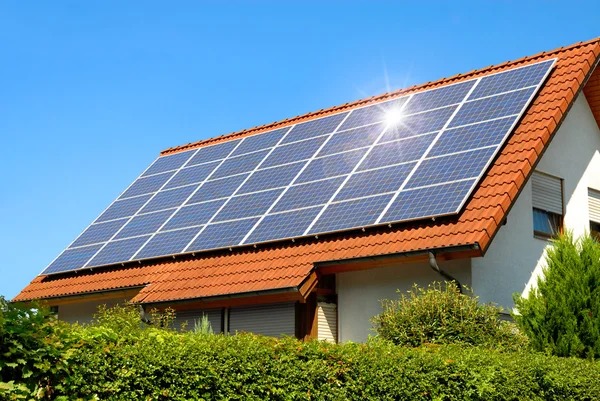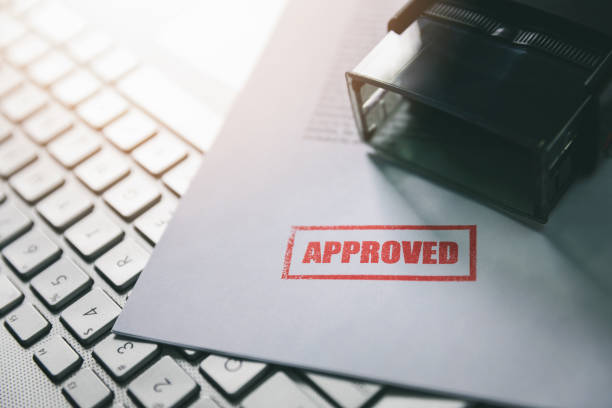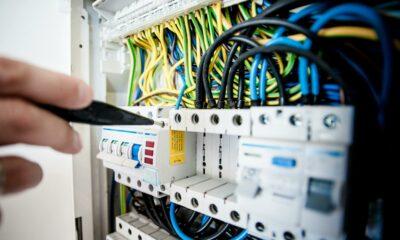Best of Johannesburg
Can You Get Fined for Solar Panels in Johannesburg? Your 2025 Rights Explained

What Every Joburger Needs to Know Before March 2026
In Johannesburg, where load shedding has shaped daily life for years, solar power has become more than just a luxury – it’s a vital lifeline. But if your solar panel system isn’t officially registered, that sunny setup on your roof could soon cost you dearly.
Yes, you can be fined in Johannesburg for failing to register your solar panels. Across South Africa, solar users face penalties exceeding R6,000 if they don’t register their systems by the March 2026 deadline – a rule that has many residents confused and concerned.
Here’s the full picture.
Also read: Generator & Inverter Safety During Load Shedding | Joburg 2025
Why Is Registration Now Mandatory?
For years, rooftop solar installations operated in a kind of Wild West. Homeowners and businesses installed panels to reduce Eskom dependence, cut electricity bills, and survive severe load shedding stages. But as solar adoption surged – adding nearly a gigawatt of private generation capacity to the national grid – Eskom and municipalities realised they were losing both control and revenue.
Starting in 2025, all grid-tied solar systems must be registered with your electricity supplier – either City Power in Johannesburg or Eskom – under national electricity regulations. This includes systems that do not export power back to the grid. Even off-grid systems are expected to register for safety compliance, although exemptions may apply if you can prove complete independence from the grid.
Unregistered solar systems are now treated as illegal meter tampering.
What Are the Consequences of Not Registering?
If your solar installation isn’t registered by 31 March 2026, you risk:
-
A fine of R6,052 or more, depending on your system
-
Possible disconnection from the grid
-
Compliance costs that could reach up to R50,000, depending on required upgrades
Eskom has already begun inspections in various communities, sometimes disguised as “information sessions” that quickly turn into compliance crackdowns.
Affected residents have been required to install new bidirectional smart meters, submit engineering compliance reports, and switch to Homeflex time-of-use tariffs – all at their own cost.
Why Is There So Much Confusion?
Most solar users want to comply but find the rules unclear. Industry groups like the Association for Renewable Energy Practitioners (Arep) and GoSolr have criticised the rollout as confusing and poorly communicated.
“People want to comply,” one solar installer told MyBroadband. “But the rules vary depending on whether you’re dealing with Eskom or a municipality. And the goalposts keep shifting.”
How to Register Your Solar System in Johannesburg
If you receive electricity from City Power, you must register your system through the Small-Scale Embedded Generation (SSEG) portal. Eskom customers should use the Eskom Embedded Generation Portal.
You will need:
-
Your electricity account details
-
A Certificate of Compliance (CoC) from a qualified electrician
-
A Single Line Diagram of your system signed by a registered engineer
-
Technical specifications of your solar panels and inverters
-
Possibly a roof structure assessment, depending on your municipality
The registration process can take 1 to 3 months, with inspections likely before approval.

Image 1: Pexels
Are There Any Exemptions or Fee Waivers?
Yes. To encourage clean energy adoption, residential solar systems up to 50kVA are currently exempt from Eskom’s registration, connection, and smart meter installation fees – but only until March 2026.
This exemption could save you up to R9,132, but Eskom has warned that higher fees will apply after the deadline.
Why Is Eskom Enforcing This?
Eskom’s reasons are threefold:
-
Grid stability: To monitor who is generating power and prevent grid overloads.
-
Revenue protection: To avoid losses from reduced electricity sales.
-
Safety compliance: To mitigate risks posed by unregistered systems feeding power back into the grid without proper safeguards.
Critics argue that these rules also serve to maintain Eskom’s financial control and slow the pace of energy independence, especially among households capable of going fully off-grid.
Public Reaction: Mixed and Passionate
Opinions among Joburg residents are divided.
“I understand the need for monitoring, but R50,000 to comply? That’s outrageous,” says Kagiso, a solar user in Randburg.
“Had I known I’d need full engineering sign-off and a new meter, I might have waited,” tweeted a frustrated Parkhurst resident.
Others support the regulations.
“It’s about safety,” says Lerato, a business owner in Melville. “Many people install cheap kits without proper checks. That’s a fire hazard, not just red tape.”
Don’t Wait Until It’s Too Late
Solar power remains a smart long-term investment and one of the best ways to navigate South Africa’s ongoing energy crisis. But to stay legal – and protect your finances – make sure your system is registered before March 2026.
If you’re unsure about your setup or the registration process, consult a certified installer or energy consultant. When it comes to solar in Joburg, ignorance won’t save you from a fine.
Also read: Water Tank Costs in Johannesburg 2025: Is It Worth It?
Follow Joburg ETC on Facebook, Twitter , TikTok and Instagram
For more News in Johannesburg, visit joburgetc.com
Featured Image: Fixunix



























